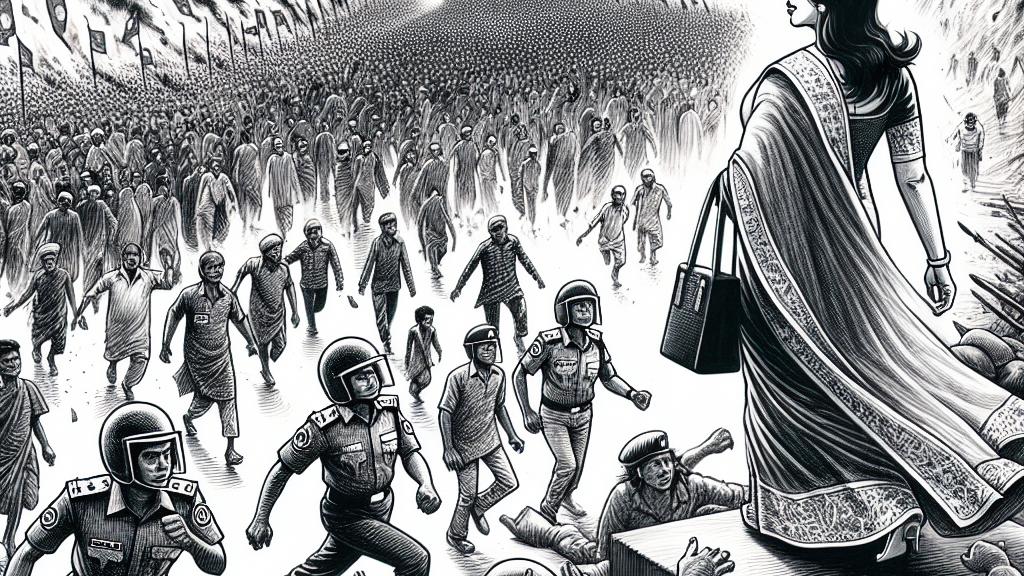Hasina's Exit Shakes Bangladesh: India's Silent Witness!
Overview
- Sheikh Hasina resigns amid unprecedented nationwide protests in Bangladesh.
- India's Ministry of External Affairs opts for strategic silence during the crisis.
- Political instability in Bangladesh poses challenges for regional peace and stability.

Bangladesh's Political Turmoil
Sheikh Hasina's resignation as Prime Minister on August 5, 2024, marks a pivotal moment in Bangladesh's history, symbolizing the culmination of rising public unrest that has plagued her government for years. The initial spark for protests was a contentious government job quota system that many perceived as unfairly favoring political elites. What began as student protests quickly escalated into widespread demonstrations against authoritarian governance, corruption, and deteriorating economic conditions. As clashes between protesters and law enforcement erupted across the streets of Dhaka, reports indicated that at least 300 lives were lost in recent violence, reflecting a nation on the brink. The sight of Hasina fleeing to India highlights the mounting tension and widespread demand for change within the populace, underscoring a significant shift away from her leadership after over a decade.
India's Response: A Strategic Silence
In the face of Bangladesh's unfolding crisis, India's Ministry of External Affairs (MEA) has chosen a path of strategic silence, refraining from comments regarding the significant political upheaval. Historically, India has nurtured robust ties with Bangladesh, with Hasina often viewed as a reliable ally in the region. However, her resignation presents a complex challenge for India, which must balance its interests in a potentially unstable neighbor. The MEA's decision to withhold public statements raises questions about India's strategy moving forward, especially as transport links, such as train services, were suspended in response to the rising unrest. By not publicly addressing the situation, India risks appearing indifferent to the plight of the Bangladeshi people while also demonstrating a cautious approach to avoid inflaming existing tensions that may complicate regional diplomacy.
Outlook for Bangladesh's Future
With the establishment of an interim government announced by military chief Waker-uz-Zaman, Bangladesh stands at a crossroads filled with opportunities and challenges. Political dynamics are shifting rapidly; the opposition, particularly the Bangladesh Nationalist Party (BNP), is poised to gain influence amid public discontent. Moving forward, it is crucial that all political entities engage in meaningful dialogue to foster stability and prevent further violence. As the international community closely watches the situation, external actors must encourage collaborative solutions that respect the democratic aspirations of the Bangladeshi people, paving the way for a resilient democracy. This moment presents a chance for Bangladesh to rejuvenate its political structures and societal agreements, but success will depend heavily on cooperation, transparency, and the commitment of all parties involved to prioritize the needs of their citizens.

Loading...